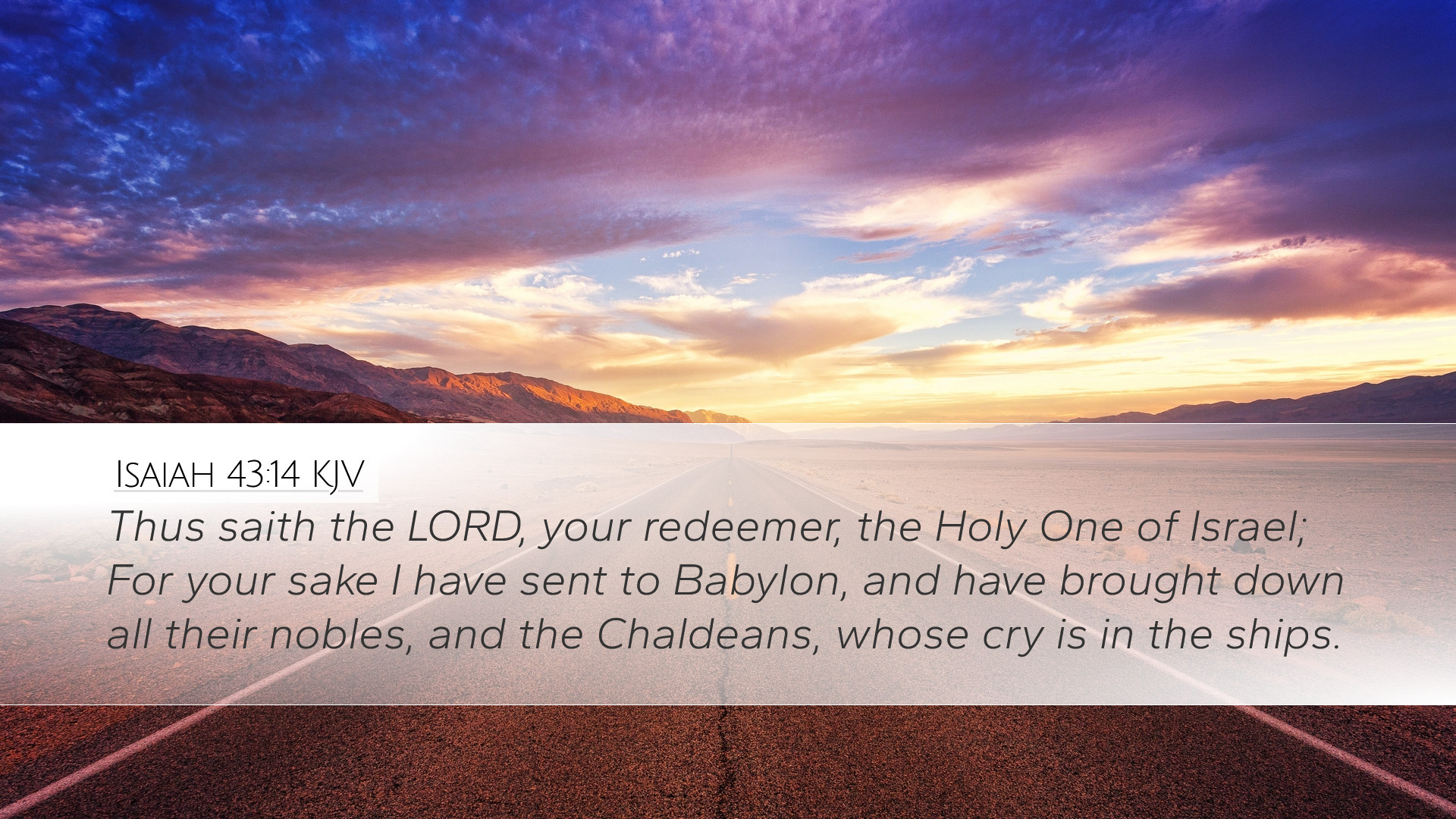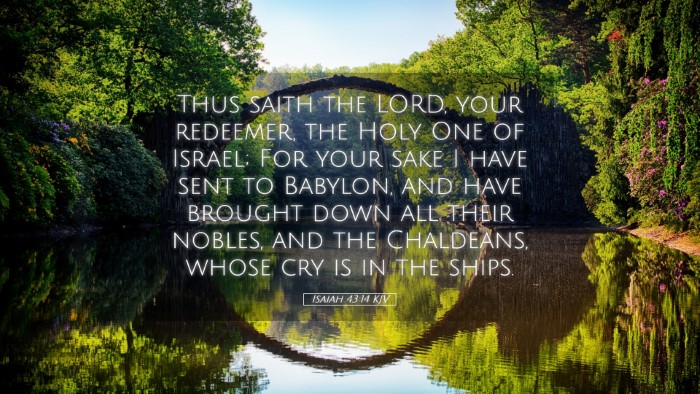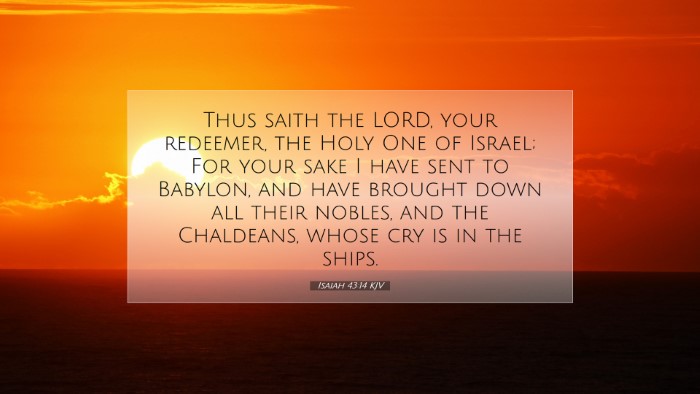Commentary on Isaiah 43:14
Verse (Isaiah 43:14, KJV): "Thus saith the Lord, your redeemer, the Holy One of Israel; For your sake I have sent to Babylon, and have brought down all their nobles, and the Chaldeans, whose cry is in the ships."
Introduction
The book of Isaiah is a profound anthology of prophetic writings that offer both judgement and hope, addressing the people of Israel during times of distress and disobedience. Isaiah 43:14 is a declaration of divine promise and assurance as Israel faces the prospect of exile and the challenge of foreign powers. This commentary seeks to delve into the theological ramifications of this verse while borrowing insights from esteemed public domain sources, providing a collective understanding relevant for pastors, students, theologians, and scholars alike.
Context of Isaiah 43
The verses leading up to Isaiah 43:14 set the scene for a rich tapestry of redemption and restoration. The Lord speaks tenderly to Israel, reassuring them of His presence and power. This section emphasizes God's commitment to His people, reminding them of His identity as their Redeemer.
Historical Setting
The historical context surrounding Hebrew captivity in Babylon is crucial. The Israelites had turned to idolatry and sin, resulting in their exile. Yet, in this despair lies a promise of deliverance. Isaiah's prophetic voice is a bridge between their past failures and future restoration.
The Character of God
The Redeemer
Isaiah introduces God as "your redeemer," highlighting the intimate relationship God has with His people. Matthew Henry emphasizes that redemption is both a theme of liberation from physical and spiritual bondage. God's role as Redeemer affirms His intention to actively intervene in the lives of His people.
The Holy One of Israel
God's holiness is central to understanding His redemptive actions. Adam Clarke notes that the "Holy One" designation underscores God's purity, righteousness, and separativeness from sin. This holiness is paramount as it assures Israel of God's capability to save them, yet it also serves as a call to repentance and renewal.
Divine Action in History
The latter part of the verse speaks to God's actions against Babylon—"For your sake I have sent to Babylon." This reflects God's sovereignty over nations and empires, a recurring theme in Isaiah. Albert Barnes points out that God's involvement in geopolitical affairs demonstrates His care for Israel's future and His authority over all the earth. God orchestrates events for His people's benefit, revealing His omnipotent hand in history.
Understanding Babylon
Babylon symbolizes not just a foreign power but also oppression and idolatry. The reference to bringing down "all their nobles" and "the Chaldeans" signifies God’s ultimate control and impending judgement on those who pursued Israel with malice. This assertion provides comfort to Israel, asserting that their hardships do not go unnoticed.
Theological Implications
The depth of Isaiah 43:14 invites reflection on several theological aspects:
- The Sovereignty of God: The entire passage underscores God's sovereign rule over earthly powers, affirming that no situation is beyond His reach.
- God's Faithfulness: Despite the Babylonian captivity, God remains steadfast in His covenantal promises, reiterating the theme of hope amid despair.
- Calls to Repentance: The understanding of redemption requires acknowledgment of sin and the need for God’s mercy—a lesson applicable in all ages.
Application for Today's Believers
For modern believers, Isaiah 43:14 holds significant relevance:
- Redemption in Christ: Just as the Israelites are reminded of their Redeemer, Christians today are called to recognize Jesus Christ as the fulfillment of this promise, offering spiritual redemption.
- Trust in Divine Sovereignty: The assurance that God orchestrates our lives invites believers to trust in His plans, especially in tumultuous seasons.
- Call to Holiness: Embracing God’s holiness challenges believers to pursue lives marked by righteousness, reflecting the character of the one who redeemed them.
Conclusion
Isaiah 43:14 serves as a profound reminder of God's unwavering commitment to His people. It encapsulates the dual themes of divine sovereignty and redemptive love. As we contemplate this verse, may we find solace in knowing that God is our Redeemer, actively working through history, promising restoration and hope for all who place their trust in Him.


